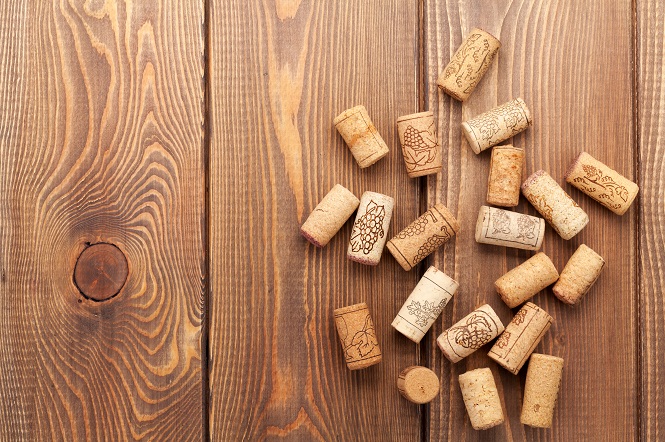 Cork is a 100-percent natural, renewable, recyclable and biodegradable material, but it is hard to find any city recycling program that allows you to put wine corks in your recycling bins.
Cork is an amazing natural resource, and it can continue to be productive even after you have finished that smooth bottle of Merlot. Recycled wine corks can be made into flooring tiles, building insulation, footwear, automotive gaskets, bulletin boards, packaging materials, soil conditioner, sports equipment and much more. So make sure your corks are not ending up in your local landfill.
Portugal is where most of the world’s cork comes from; the country produces over 53 percent of all cork stoppers and related products. Daniel Michalik, a Brooklyn-based designer and educator, spent some time documenting the harvesting and manufacturing of Portugal’s cork crop.
“This small country boasts almost 1 million hectares of cork forest. […] Portugal’s cork forests absorb 14 million tons of CO2 from the atmosphere every year,” explained Michalik. “A cork oak is harvested every 9 years, and the forests are on yearly, rotating harvest cycles. While one area is harvested, the others are left alone to grow.”
The cork oak tree is not cut down to harvest the cork and, if done properly, harvesting actually extends the life of the tree.
To find out more about the sustainable cork oak trees, check out this article.
Before you toss that cork in the garbage, here are some better options:
Cork is a 100-percent natural, renewable, recyclable and biodegradable material, but it is hard to find any city recycling program that allows you to put wine corks in your recycling bins.
Cork is an amazing natural resource, and it can continue to be productive even after you have finished that smooth bottle of Merlot. Recycled wine corks can be made into flooring tiles, building insulation, footwear, automotive gaskets, bulletin boards, packaging materials, soil conditioner, sports equipment and much more. So make sure your corks are not ending up in your local landfill.
Portugal is where most of the world’s cork comes from; the country produces over 53 percent of all cork stoppers and related products. Daniel Michalik, a Brooklyn-based designer and educator, spent some time documenting the harvesting and manufacturing of Portugal’s cork crop.
“This small country boasts almost 1 million hectares of cork forest. […] Portugal’s cork forests absorb 14 million tons of CO2 from the atmosphere every year,” explained Michalik. “A cork oak is harvested every 9 years, and the forests are on yearly, rotating harvest cycles. While one area is harvested, the others are left alone to grow.”
The cork oak tree is not cut down to harvest the cork and, if done properly, harvesting actually extends the life of the tree.
To find out more about the sustainable cork oak trees, check out this article.
Before you toss that cork in the garbage, here are some better options: - Save your wine corks and create something with them. For example, make your own cork board, trivet or other cork art. Here are 50 fun and easy ideas for your wine corks from Snappy Pixels.
- Bring your wine corks to your local Whole Foods Market. Wine corks are collected at Cork ReHarvest kiosks/bins in all Whole Foods Market locations. If you do not have a Whole Foods in your area, check for other drop off locations at the Cork Forest Conservation Alliance. Synthetic corks made from petroleum-based products are not accepted for recycling through the program. Cork ReHarvest also partners with the Food and Beverage and Hospitality industries to collect cork at restaurants, hotels, wine bars, convention and performing arts centers.
- Another recycling option is ReCORK. ReCORK America has joined with national retailers to establish wine cork collection locations all across the nation. In addition, ReCORK has partnered with restaurants, businesses, resorts, wineries and wine retailers to collect used corks from day-to-day business operations and recycle them into new materials. To find a collection box near you, visit the ReCORK website. “There are 13 billion natural cork wine stoppers sold in the world market each year, most of which end up in the landfill,” stated ReCORK America. “It takes approximately 300,000 wine corks to yield a ton of cork for recycling into new product.”
To learn more information about the sustainability of cork, visit http://www.corkforest.org/cork-facts/.